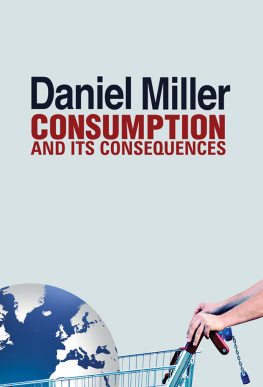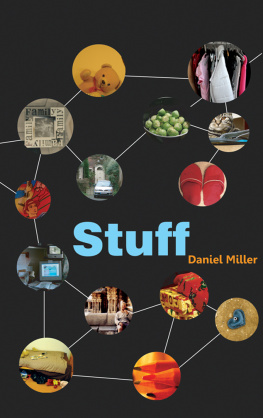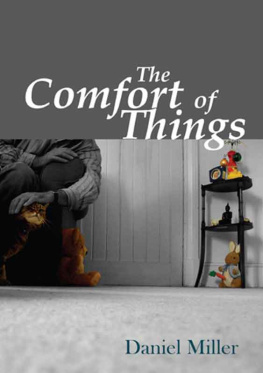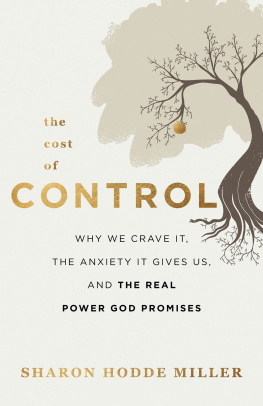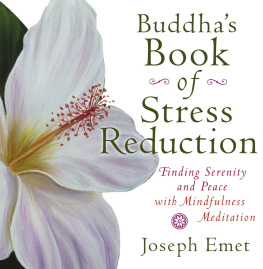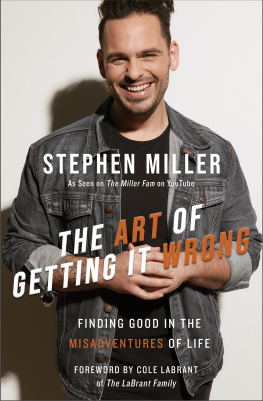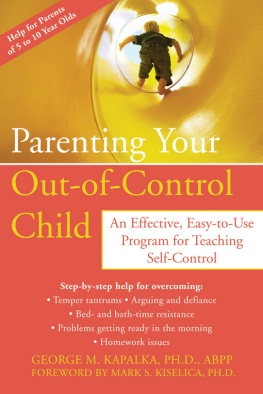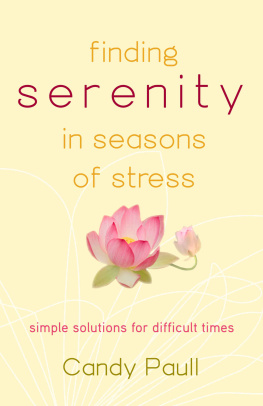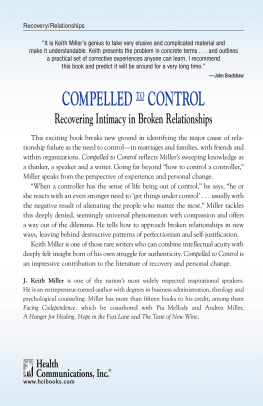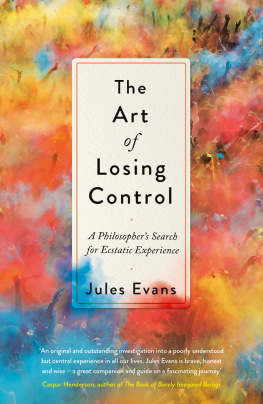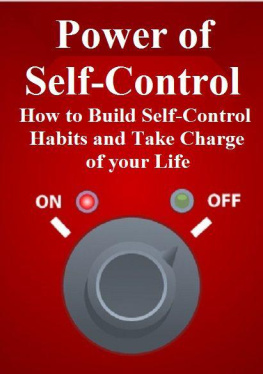
ABOUT THE AUTHOR
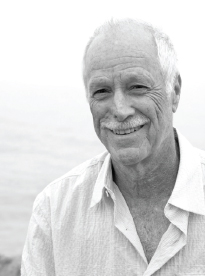
Like most compulsive controllers, Daniel A. Miller was always driven to succeed. He graduated from UCLA with honors in business administration and finished in the top 5 percent of his class at the UCLA School of Law.
While still in his twenties, he became a popular real estate instructor in the UCLA extension program, and in his thirties he published a critically acclaimed, best-selling professional book, How to Invest in Real Estate Syndicates. He later founded the California Institute of Real Estate Education, which offered state-licensed seminars to thousands of real estate professionals.
Financial success came early to Danny. Celebrities and wealthy people entrusted him with large sums to invest on their behalf. By his midthirties he could afford to live in the exclusive Old Bel-Air section of Los Angeles, only a few doors away from Sylvester Stallone and just up the street from where Elvis Presley had once lived.
But for all his achievements and success, Danny had no sense of inner peace and serenity. He was imprisoned by his fears, anger, and anxieties and thus not open to the wonders all about him.
After a long series of personal setbacks, Danny finally began a new life journey based on letting go of control. He tried to go with the ups and downs and twists and turns of life, instead of resisting them and trying to control people and things.
He learned effective tools and techniques for losing control in important areas such as family, parenting, love and romance, the creative arts, sports, and the workplace. He became an accomplished fine artist, a published poet, a champion tournament tennis player, a happily married man, and a much wiser parentall while cutting his work time by more than half.
Thus, through letting go of control, Danny found a different and more profound kind of successan internal, core sense of well-being. He now counsels others and writes (on his blog at blog.losingcontrolfindingserenity.com) and speaks about the remarkable benefits of letting go of control. Please visit www.losingcontrolfindingserenity.com for keynote speaker information.

ACKNOWLEDGMENTS
I WISH TO ACKNOWLEDGE and thank those who have played instrumental roles in the nearly twenty-five-year personal journey and exploration culminating in the publication of this book.
The first person I must thank is my beautiful (in every way) wife, Sigute, for being so supportive and encouraging throughout, including acting as my confidant and ad hoc advisor and proofreader. Thank you, sweetheart; I love you. Thank you, too, to my special children, Brandon, Lora, and Lana, whose independence and diverse personalities helped teach me the wisdom of letting go of parental control.
Thanks mucho to my fellow Waver Denis Kunstler, who shared some fun early rides with me. Thanks also to some supportive friends who encouraged and motivated me more than they may realize: Marcia Ross, Paul Henne, Norman Hull, Nijole Sparkis, Fritz Heede, Dave Kimball, Vic Kimball, and David Olsen.
A special thanks to my soulful friend Doris Wolz-Cohen for reviewing some early writings and sharing with me the importance of processing our unwanted feelings on an internal level as an essential means of reducing our external control responses. A special thanks as well to Jeff Brickell, a very supportive and intuitive life coach, who encouraged me to share my ideas and beliefs about control with others.
I am especially grateful to my fine team of highly talented and respected publishing professionals: Beth Lieberman, my line editor, thank you for your insightful suggestions for improving the manuscript and later polishing it in a manner that enhanced its flow and continuity; Dianne Woo, my copy editor, thank you for being so meticulous in ensuring that my writing was consistent and grammatically correct throughout; Mayapriya Long, thank you for lending your refined artistry to the book's cover and interior design; and a very special thanks to Sharon Goldinger, my experienced, trusted, and always professional go to publishing advisor, for always steering me in the right direction and to the right people.
And I would be remiss if I failed to acknowledge the important roles that my adversaries (real and perceived) played in helping shine light on the follies of my controlling misadventures and for helping me ultimately realize that victory and success are meaningful only when accompanied by a peaceful heart and mind.
Finally, I am forever grateful to the Alanon program and its guiding principles for confirming and enhancing my beliefs about the importance of letting go of control and to the members of its supportive fellowship for sharing their strength, hope, and experience.
AFTERWORD

MOVING AHEAD
I HAVE COME TO realize something as I have better learned to apply the decontrol tools I write about: my urge to control never really ceases. It abates for varying periods, but it continues to surfaceoften without warningparticularly when triggered by my fear, anger, and anxiety. The important differences now are that I am much more aware of when and how I am being controlling and I have the means to quell the urge much sooner.
I am also more frequently enjoying the benefits that result from letting go of control when pursuing new opportunities and facing new challenges. In the past I would have obsessed and worried a lot and pressed for quick solutions. That now seldom happens. Instead, I view challenges as new learning opportunities. I try to be open-minded and patient and to trust that everything will work out in its own way, time, and place. And it usually does.
I encourage you, too, to apply the decontrol tools and techniques in my book that speak to you personally as you encounter new challenges in your lifeparticularly those that are uncertain, fearful, or overwhelming. Look at them as opportunities to expand your horizons and discard ways that no longer work for you.
As I have begun sharing and speaking about the benefits of giving up control, it has been especially rewarding that my message has resonated so strongly with people. I have found that so many people are ready to let go. Quite simply, they recognize that their controlling methods and devices haven't served them well, particularly in our increasingly complex world. I am heartened as people share their personal success stories with relinquishing control. I invite you to share your own stories, including what has worked for youand what hasn'tby visiting my Decontrol Yourself blog at blog.losingcontrolfindingserenity.com.
Finally, although the idea of relinquishing control can at times seem unbearable or unfathomable, please let me assure you that it becomes much easier as you begin to experience the rewards that come when you let go. It may help if you think of and accept (as I do) life as being an ongoing, ever-changing mysterya mystery that is clearly unsolvable yet one that reveals clues that can lead to significant life rewards IF you don't try solving the mystery.

CHAPTER ONE

THE COMPULSION TO
CONTROL


